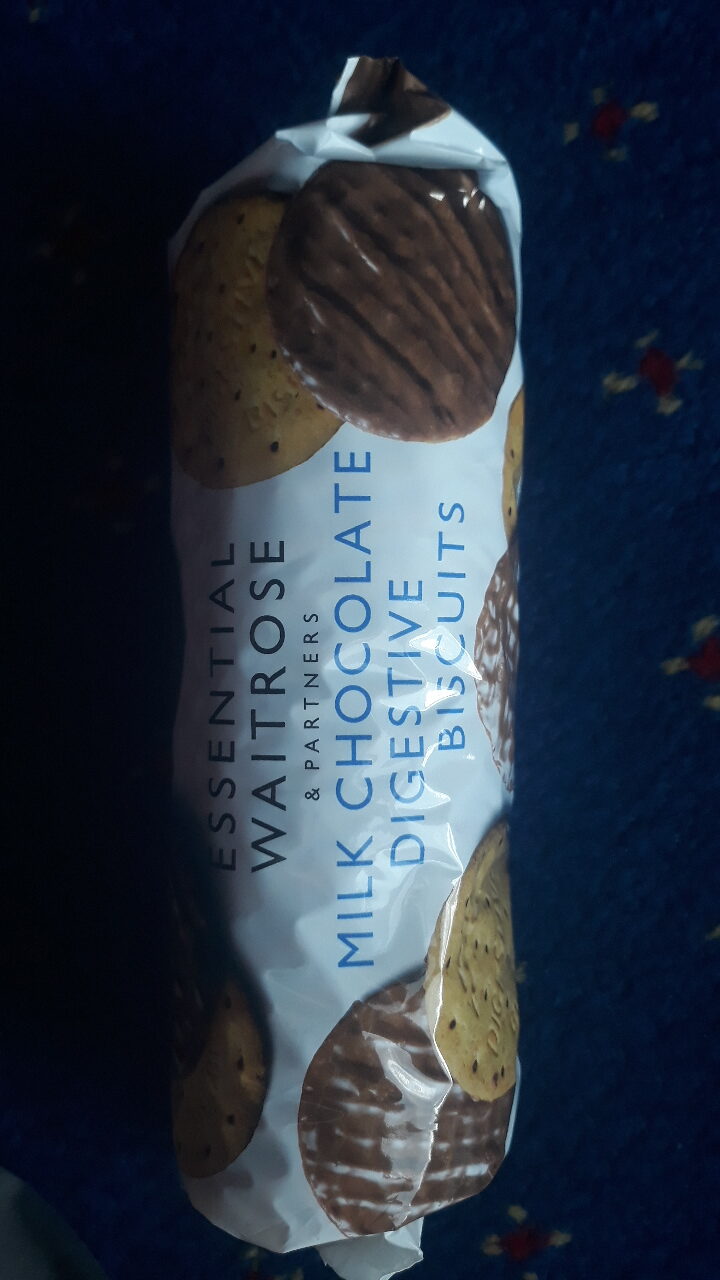
Barcode: 5000169640227
essential milk chocolate digestive biscuits
HALAL
📝 Reason: All ingredients in this product are plant-, dairy-, or mineral-derived and do not match any haram or doubtful (shubahah) ECodes or animal/meat sources as per the provided rules. No animal rennet or haram additives are listed. Quran 5:3 forbids the consumption of pork, carrion, blood, and unlawfully slaughtered animals, none of which apply here. Reliable halal food authorities indicate these are all generally accepted halal ingredients (see IFANCA, ICP, foodchemadditives.com).
🏷️ Category: Biscuits
📄 Certificates: Vegetarisch
Ingredients:
Details
Understanding the Halal Status of Essential Milk Chocolate Digestive Biscuits
The essential milk chocolate digestive biscuits are a delightful snack for all. However, if you adhere to Halal dietary laws, you may wonder about their compliance. We’ve analyzed their ingredients and E-numbers to provide comprehensive insights into their Halal status.
Halal Status Overview
The essential milk chocolate digestive biscuits carry a Halal certification. All ingredients utilized in these biscuits are either plant-based, dairy-derived, or mineral-based, which are compliant with Halal standards. Moreover, none of the components relate to haram (forbidden) sources or any substances mentioned in Quran 5:3, which forbids the consumption of pork, blood, and unlawful animals. As per reliable Halal food authorities such as IFANCA and ICP, these biscuits are deemed suitable for consumption by those following Halal dietary guidelines.
Ingredients Breakdown
Let’s delve deeper into each ingredient to confirm their Halal compliance:
- Wheat Flour: Naturally plant-based and entirely permitted in Islam. Source.
- Milk Chocolate: Consists of sugar and cocoa, along with milk derivatives, halal unless containing haram additives or alcohol-based flavors. Source.
- Sugar: Generally halal unless processed with animal bone char. Source.
- Cocoa Butter: Derived from cocoa beans, thus plant-based and Halal. Source.
- Cocoa Mass: Another cocoa derivative, simply ground cocoa beans, which is halal. Source.
- Dried Skimmed Milk: Halal if sourced from cows with no risk of contamination from haram sources. Source.
- Whey Powder: Halal, provided it is sourced without animal or porcine rennet, common in UK and EU biscuits. Source.
- Butter Oil: Clarified butter fat from cow’s milk, thus Halal. Source.
- Vegetable Fats: Halal if derived from plant sources. Source.
- Palm and Shea: Plant-derived fats that are fully halal. Source.
- Emulsifier (Soya Lecithin): Derived from soybeans, this ingredient is halal. Source.
- Raising Agents: Mineral-based, hence they are halal. Source.
- Sodium Bicarbonate and Ammonium Bicarbonate: Both are halal as they are minerals. Source and Source.
- Disodium Diphosphate: A mineral-based additive confirmed halal. Source.
- Oats: Plant-based, halal, and contains no haram components. Source.
- Vegetable Oil: Halal as sourced from plants. Source.
- Rapeseed: Another plant-based source, hence it’s halal. Source.
- Partially Inverted Sugar Syrup: Formed of sugar and water, both halal. Source.
- Glucose-Fructose Syrup: Derived entirely from plants and halal. Source.
- Salt: A mineral and readily halal source. Source.
Conclusion
In conclusion, the essential milk chocolate digestive biscuits are convincingly halal. With all ingredients derived from plant, dairy, or mineral sources and no additives from haram categories, they are a safe option for your Halal dietary needs. Whether you’re looking for a delicious snack at home or wanting to share with friends, you can enjoy these biscuits knowing they meet your Halal requirements. Additionally, their excellent taste combined with reliable Halal certification makes them an ideal treat for consumers who follow halal principles.
